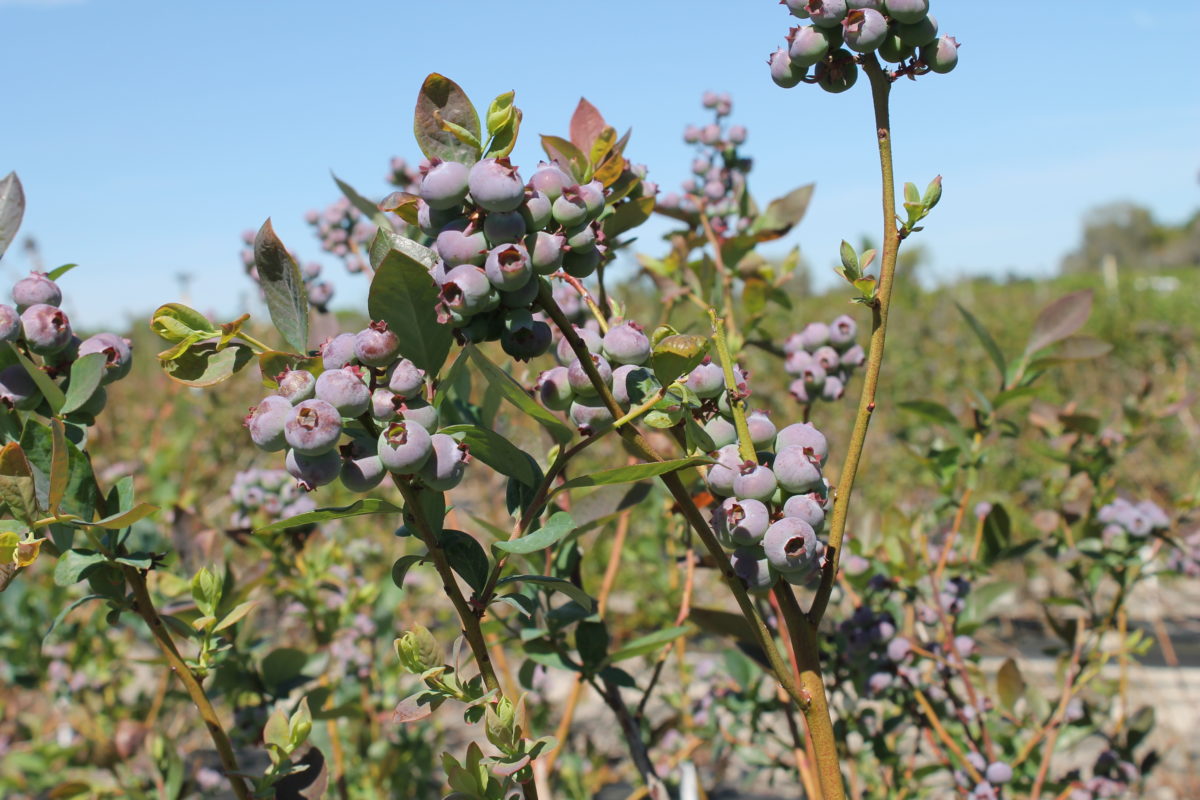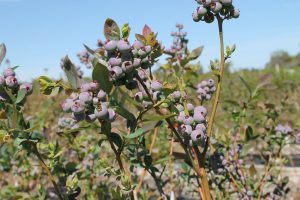Many Florida strawberry and blueberry growers face similar challenges when managing mites and insects.
Chilli thrips affect strawberries by feeding on the foliage and fruit of the crop. The pest affects blueberries by feeding on new growth in the spring and summer. Chilli thrips are relatively new to Florida growers, said Justin Renkema, assistant professor at the University of Florida’s Gulf Coast Research and Education Center.
Chilli thrips are managed naturally, in some cases, by predators already existing within the crop. Along with this, Renkema said that growers typically use insecticides to manage the pests.
The Diaprepes root weevil is a beetle that affects blueberry crops. It is also a minor pest in strawberries. This beetle is commonly found in citrus crops. It affects plants by attacking the roots, which can directly kill the plant or make it more susceptible to diseases, according to Renkema.
Management of Diaprepes root weevil is being studied with the possibility of a type of nematode that kills the larvae of the pest without harming the plant. This natural enemy is already used for controlling Diaprepes in citrus crops.
Renkema said some pests, such as the spotted-wing drosophila, are also an issue for growers of both strawberries and blueberries. “One major difference is that spotted-wing drosophila seems to be a bigger problem in blueberries than strawberries,” he said.
Spotted-wing drosophila was discovered in 2009 in Florida, according to Renkema. The female adult lays eggs into the ripening fruit. This causes the fruit to be softer than normal and unable to be marketed. He said cautious examination of crops for this pest can help growers know when to start applying insecticide to protect fruit.
For management of spotted-wing drosophila, researchers are working on testing biological controls and naturally repellent compounds. Renkema said they are also planning to study the flight habits of this pest with high-speed cameras, alongside a University of South Florida researcher, to determine how new knowledge on flight behavior may help with research on improving management.
Renkema said researchers are continuing to work to find effective management practices, including better integration of insecticides with biological or other control methods, in order to solve issues for Florida’s strawberry and blueberry growers.
Share this Post











